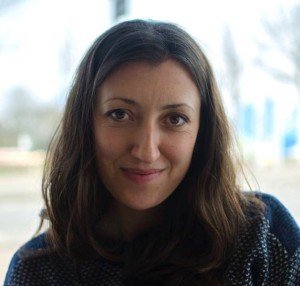 Dr Georgina Clifford is a trauma specialist and experienced Clinical Psychologist who has worked in Psychology since 2003. Dr Clifford specialises in Trauma-focused Cognitive Behaviour Therapy (CBT) and has experience and expertise in treating psychological presentations in the aftermath of traumatic experiences. She has a special interest and growing expertise in working with women who have had a traumatic birth experience and women with Post-Natal Depression. We are very excited to welcome Dr Georgina Clifford to our Level 5 Maternity Nurse Training as a Guest Speaker.
Dr Georgina Clifford is a trauma specialist and experienced Clinical Psychologist who has worked in Psychology since 2003. Dr Clifford specialises in Trauma-focused Cognitive Behaviour Therapy (CBT) and has experience and expertise in treating psychological presentations in the aftermath of traumatic experiences. She has a special interest and growing expertise in working with women who have had a traumatic birth experience and women with Post-Natal Depression. We are very excited to welcome Dr Georgina Clifford to our Level 5 Maternity Nurse Training as a Guest Speaker.
00:00 What inspired you to become a psychologist?
As a teenager, I wanted to be Jodie Foster from Silence of the Lambs and planned to go into Criminal Psychology. I decided I didn't want to work with perpetrators during my Clinical training and specialised in working with victims of trauma instead.
00:09 What particularly interests you about trauma?
I was initially fascinated by stories of traumatised soldiers in the First World War (brilliantly depicted by Pat Barker in her Regeneration Trilogy). Since then, I've been very interested in the neuropsychology of trauma – the way in which traumatic experiences impact on the brain and the way people process memories as a consequence.
00:21 There’s currently a lot of stigma surrounding postnatal depression – why do you think this is?
I think there's a huge amount of pressure on new mothers to enjoy and to be seen to be enjoying motherhood. People say things such as “enjoy those precious early days” and “make the most of it, they grow up so fast.” And the old adage that “all's well that ends well”.. It's hard for mothers to say they're not enjoying it or not coping very well. Voicing some of the thoughts and feelings associated with post-natal depression can be so much harder.
00:34 Do you feel like there is a lack of public understanding surrounding birth trauma?
I think there's a lack of public understanding surrounding trauma generally. People often assume that PTSD is “something that soldiers from the war get” without fully understanding why and how it develops in the first place. There's a lack of understanding or at least a lack of public acceptance of just how frightening and disempowering childbirth can be. I believe we're sold a very different story.
00:45 Do you have a family of your own?
Yes, I have two children, a girl and a boy. Clara's 3 1/2 and Ira's 17 months.
00:50 What is the most challenging part of your job?
If you had asked me before I had children then I would have said it was the emotional impact of the stories I hear every day. But now the most challenging part is juggling a career and motherhood. It's tough.
00:58 One piece of advice for a newly qualified Maternity Nurse?
Sometimes professionals are so focused on the medical side of labour that they forget simple things such as saying “you're doing well” or “it's going to be ok”, which can make a massive difference to how the mother feels and therefore how her labour progresses.
